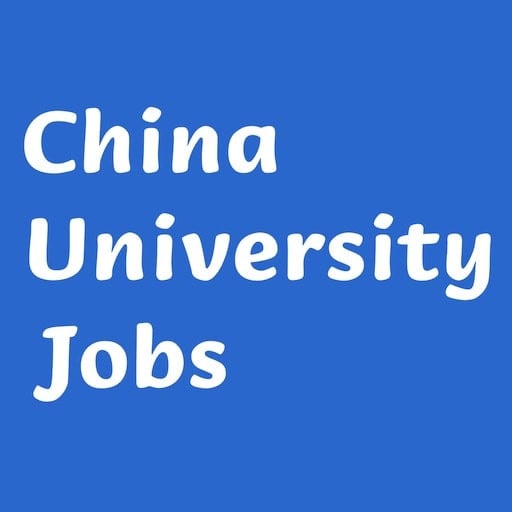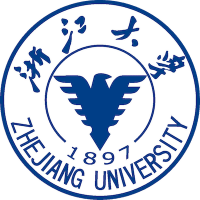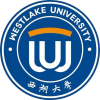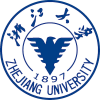Job Overview
- Apply by Long-term Recruitment
More Information
- Qualification PhD
- Discipline Medical & Health Science
- Department/School Website lsi.zju.edu.cn
Introduction of LSIZJU:
The Life Sciences Institute (LSI) was founded in October, 2009 as the first Special Academic Unit of Zhejiang University. Located in Hangzhou, one of the most historic, picturesque and livable cities in China, LSI aims to be an internationally recognized biomedical research institution. LSI has assembled a Scientific Advisory Board comprised of world-renowned biological scientists to offer consultation on faculty recruitment and institutional development, and continued its effort to recruit top-tier scientists world-wide of any nationalities to establish laboratories focusing on fundamental questions in life and biomedical sciences.
LSI currently has 28 faculty members in areas of cancer biology, regenerative medicine, inflammation biology, systems biology and structural biology. LSI is empowered by unparalleled freedom in academic, graduate education, personnel management, and financial flexibility within the university. We offer a state-of-the-art core facility, including next-generation sequencer, super-resolution microscopes, multi-color flow cytometer, mass spectrometer, small animal in vivo imaging facility, zebrafish facility and a large number of shared facilities on campus.
LSI has achieved impressive accomplishments in the past few years. To further strengthen its international competitiveness, LSI is expanding its research programs with top scientists. We cordially invite outstanding scientists at all levels around the world to join LSI.
In order to enrich the research team, LSI recruits outstanding postdoctoral around the world.
Requirements:
(1) A Ph.D. degree in life sciences, basic medicine or other related fields, with publications in international journals. Trainings in cancer biology, stem cell biology, inflammation biology, systems biology and other disease-related areas are particularly preferred.
(2) Self-motivation and innovative thinking with solid techniques in cell biology, biochemistry and molecular biology.
(3) Ability to understand and criticize research papers in English.
(4) Excellent writing and oral communication skills in English, a strong sense of responsibility and team spirit.
(5) Independence in scientific research with guidance from the PI.
Salary:
Salary will be commensurate with experience, following the guideline of Zhejiang University. A competitive salary package will be provided (excluding mentor’ work allowance and postdoctoral fellowship funded by the Institute).
*Special Funding
Ph.D. graduates from the world’s top 100 universities and colleges, foreign Ph.D. graduates from top overseas universities or other outstanding PhD graduates will be provided 200,000 RMB annually by the university, and it should reach above 300,000 RMB annually with the fund from the mentor and the Institute.
*Key Funding
Foreign Ph.D. graduates or Ph.D. graduates from top overseas universities, universities in the list of China’s “Double-First Class” initiative or preponderant disciplines, will be provided 100,000 RMB -120,000 RMB annually by the university. It should reach higher than 170,000 RMB for candidates plus the fund from the mentor and the Institute.
* Standard Funding
Other Ph.D. graduates will be provided 60,000 -80,000 RMB annually by the university.
After evaluation, outstanding postdoctoral can get fellowship funded by the Institute, no more than 50,000 RMB annually.
Materials:
1. A full CV including all education and working experiences;
2. Supporting documents (i.e., publication record and received awards);
3. Contact information of 2-3 references.
Please email all materials in PDF format to the PI of interest.
Position openings are listed below:
| PI | Research Interests | Tel | |
| Dr. Xin-Hua Feng | Proteins modifications and signaling networks in cell growth control, tumorigenesis and development. | Click to show encoded email | 86-571-88208038 |
| Dr. Kunliang Guan | The molecular mechanisms of cell growth, cell metabolism, and cancer. | Click to show encoded email | 86-571-88206016 |
| Dr. Haiwei Song | Studying structure and function of proteins and complexes implicated in human diseases. | Click to show encoded email | 86-571-88981926 |
| Dr. Heng-Yu Fan | The mechanisms of mammalian germ cell development and the desease model related to female reproductive system. | Click to show encoded email | 86-571-88981370 |
| Dr. Xiangwei He | Mechanisms of chromatin-mediated epigenetic stability in the fission yeast S.pombe. | Click to show encoded email | 86-571- 88206639 |
| Dr. Jun Huang | To understand the molecular mechanisms underlying genome instability and tumorigenesis. | Click to show encoded email | 86-571-88981391 |
| Dr. Jianping Jin | Ubiquitylation, Inflammation and Cancer | Click to show encoded email | 86-571-88208657 |
| Dr. Chao Tong | Autophagy and neurodegeneration | Click to show encoded email | 86-571-88981370 |
| Dr. Pinglong Xu | Elucidate the physiological role and underlying mechanisms of innate host defense and cytokine signaling in modulation of tumorigenesis and tumor progression. | Click to show encoded email | 86-571-88206078 |
| Dr. Sheng Ye | Structural biology | Click to show encoded email | 86-571-88981521 |
| Dr. Bin Zhao | Molecular mechanism of organ size control and cancer; functional annotation of the kinome. | Click to show encoded email | 86-571-88208545 |
| Dr. Yongqun Zhu | Molecular mechanism of bacterial-host interactions in the intestine. | Click to show encoded email | 86-571-88206122 |
| Dr. Dong Fang | Elucidate the function of oncohistones in tumorigenesis and how the histone modificationsare maintained. | Click to show encoded email | 86-571-88981373 |
| Dr. Xing Guo | Proteasome regulation in health and disease. | Click to show encoded email | 86-571-88981783 |
| Dr. Junfang Ji | microRNA | Click to show encoded email | 86-571-88208956 |
| Dr. Junling Jia | Utilizing model organisms and genomic/epigenomic approaches to investigate fundamental questions related to chromatin structure during stem/progenitor cells proliferation and differentiation. | Click to show encoded email | 86-571-88208502 |
| Dr. Jin Jin | Molecular Immunology | Click to show encoded email | 86-571-88208536 |
| Dr. Shixian Lin | Probing proteins modifications and life cycle with chemistry and biology. | Click to show encoded email | 86-571-88981543 |
| Dr. Aimin Ren | Structural and functional study of important RNA molecule. | Click to show encoded email | 86-571-88981227 |
| Dr. Heng Ru | Research interests: The molecular mechanisms of antigen receptor gene recombination, DNA transposition, repair and its regulatory process by means of cryo-EM. | Click to show encoded email | 86-571-88206435 |
| Dr. Li Shen | Epigenomic regulation in pluripotency,differentiation,and human disease. | Click to show encoded email | 86-571-88981751 |
| Dr. Hai Song | Mammalian embryonic development, stem cells, tissue injury and repair, tumorigenesis. | Click to show encoded email | 86-571-88206850 |
| Dr. Fangwei Wang | The regulation of mitotic cell division, focusing on protein kinases and histone modifications. | Click to show encoded email | 86-571-88206127 |
| Dr. Liming Wang | Neural regulation of energy homeostasis; Disease models for lipid metabolism and dysfunction; Biophotonics. | Click to show encoded email | 86-571-88981815 |
| Dr. Bing Yang | Develop mass spectrometry based technology for characterizing protein-protein interaction and protein structure. | Click to show encoded email | 86-571-88208562 |
| Dr. Long Zhang | The cellular signaling in tumorigenesis and cancer metastasis | Click to show encoded email | 86-571-88208375 |
| Dr. Jie Zhou | Structural, mechanistic and functional aspects of protein translation in bacteria and eukarya by using biochemistry, X-ray crystallography and cryo-electron microscopy. | Click to show encoded email | 86-571-88981373 |
| Dr. Qi Zhou | Genome Evolution; Evolution of Sex Determination Mechanisms and Sex Chromosomes of Birds and Insects. | Click to show encoded email | 86-571-88981752 |
| Dr. Qing Zhou | Studying the genetics, genomics and pathophysiology of inherited disorders. | Click to show encoded email | 86-571- 88981042 |
| Dr. Saiyong Zhu | Studying the molecular mechanisms controlling endoderm cell fate and developing effective cell-based and/or pharmaceutical therapeutics for metabolic disorders. | Click to show encoded email | 86-571-88981797 |
<Please reference the source “ChinaUniversityJobs.com” when submitting your application.>







